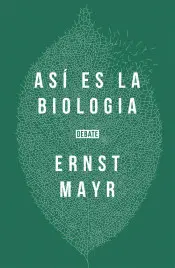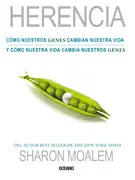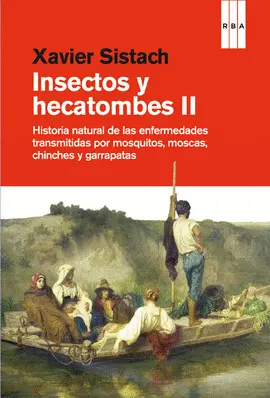"While tropical forests are being cleared at an alarming rate, the clearing is rarely complete and is often not permanent. A considerable amount of tropical forest exists as remnants that have significant value both for the conservation of biological diversity and for meeting the needs of local people.This volume brings together world-renowned scientists and conservationists to address the biological and socio-economic value of forest remnants and to examine practical efforts to conserve those remnants. An outgrowth of a year-long study by the policy program at the Smithsonian Migratory Bird Center, Forest Patches in Tropical Landscapes provides a broad overview of theory and practice, and will help foster both interdisciplinary research and more effective approaches to tropical conservation and development.
Acknowledgments x
Contributors xi
Whose Knowledge, Whose Genes, Whose Rights?
1 (24)
Stephen B. Brush
Part I. Equity and Indigenous Rights?
Tribal Rights
25 (16)
Thomas Greaves
Center, Periphery, and Biodiversity: A Paradox of Governance and a Developmental Challenge
41 (27)
Michael R. Dove
Telling Stories about Biological Diversity
68 (34)
Charles Zerner
Sketches, Qualms, and Other Thoughts on Intellectual Property Rights
102 (20)
Stephen Gudeman
The New Environmentalist Movement of Latin American Indigenous People
122 (21)
Stefano Varese
Is Common Heritage Outmoded?
143 (24)
Stephen B. Brush
Part II. Conservation, Knowledge, Property
Biological Diversity, Indigenous Knowledge, Drug Discovery, and Intellectual Property Rights
167 (19)
Steven R. King
Thomas J. Carlson
Koty Moran
Sharing the Benefits of Plant Resources and Indigenous Scientific Knowledge
186 (23)
Gary Paul Nabhan
Angelo Joaquin Jr.
Nancy Laney
Kevin Dahl
Culture and Community Values in the Selection and Maintenance of African Rice
209 (21)
Paul Richards
Tradition, Regulation, and Intellectual Property: Local Agricultural Products and Foodstuffs in France
230 (14)
Laurence Berard
Philippe Marchenay
Selling Hawaiian Crop Cultivars
244 (15)
Brien A. Meilleur
Part III. Policy Options and Alternatives
Quid Pro Quo: Alternatives for Equity and Conservation
259 (22)
Thomas D. Mays
Kate Mazan
Edgar J. Asebey
Michael R. Bayd
Gordon M. Cragg
Agreements to Collect Biodiversity for Pharmaceutical Research: Major Issues and Proposed Principles
281 (24)
Francesca T. Grifo
David R. Downes
Can the Intellectual Property Rights System Serve the Interests of Indigenous Knowledge?
305 (18)
Surendra J. Patel
Index 323
Acknowledgments x
Contributors xi
Whose Knowledge, Whose Genes, Whose Rights?
1 (24)
Stephen B. Brush
Part I. Equity and Indigenous Rights?
Tribal Rights
25 (16)
Thomas Greaves
Center, Periphery, and Biodiversity: A Paradox of Governance and a Developmental Challenge
41 (27)
Michael R. Dove
Telling Stories about Biological Diversity
68 (34)
Charles Zerner
Sketches, Qualms, and Other Thoughts on Intellectual Property Rights
102 (20)
Stephen Gudeman
The New Environmentalist Movement of Latin American Indigenous People
122 (21)
Stefano Varese
Is Common Heritage Outmoded?
143 (24)
Stephen B. Brush
Part II. Conservation, Knowledge, Property
Biological Diversity, Indigenous Knowledge, Drug Discovery, and Intellectual Property Rights
167 (19)
Steven R. King
Thomas J. Carlson
Koty Moran
Sharing the Benefits of Plant Resources and Indigenous Scientific Knowledge
186 (23)
Gary Paul Nabhan
Angelo Joaquin Jr.
Nancy Laney
Kevin Dahl
Culture and Community Values in the Selection and Maintenance of African Rice
209 (21)
Paul Richards
Tradition, Regulation, and Intellectual Property: Local Agricultural Products and Foodstuffs in France
230 (14)
Laurence Berard
Philippe Marchenay
Selling Hawaiian Crop Cultivars
244 (15)
Brien A. Meilleur
Part III. Policy Options and Alternatives
Quid Pro Quo: Alternatives for Equity and Conservation
259 (22)
Thomas D. Mays
Kate Mazan
Edgar J. Asebey
Michael R. Bayd
Gordon M. Cragg
Agreements to Collect Biodiversity for Pharmaceutical Research: Major Issues and Proposed Principles
281 (24)
Francesca T. Grifo
David R. Downes
Can the Intellectual Property Rights System Serve the Interests of Indigenous Knowledge?
305 (18)
Surendra J. Patel
Index 323








